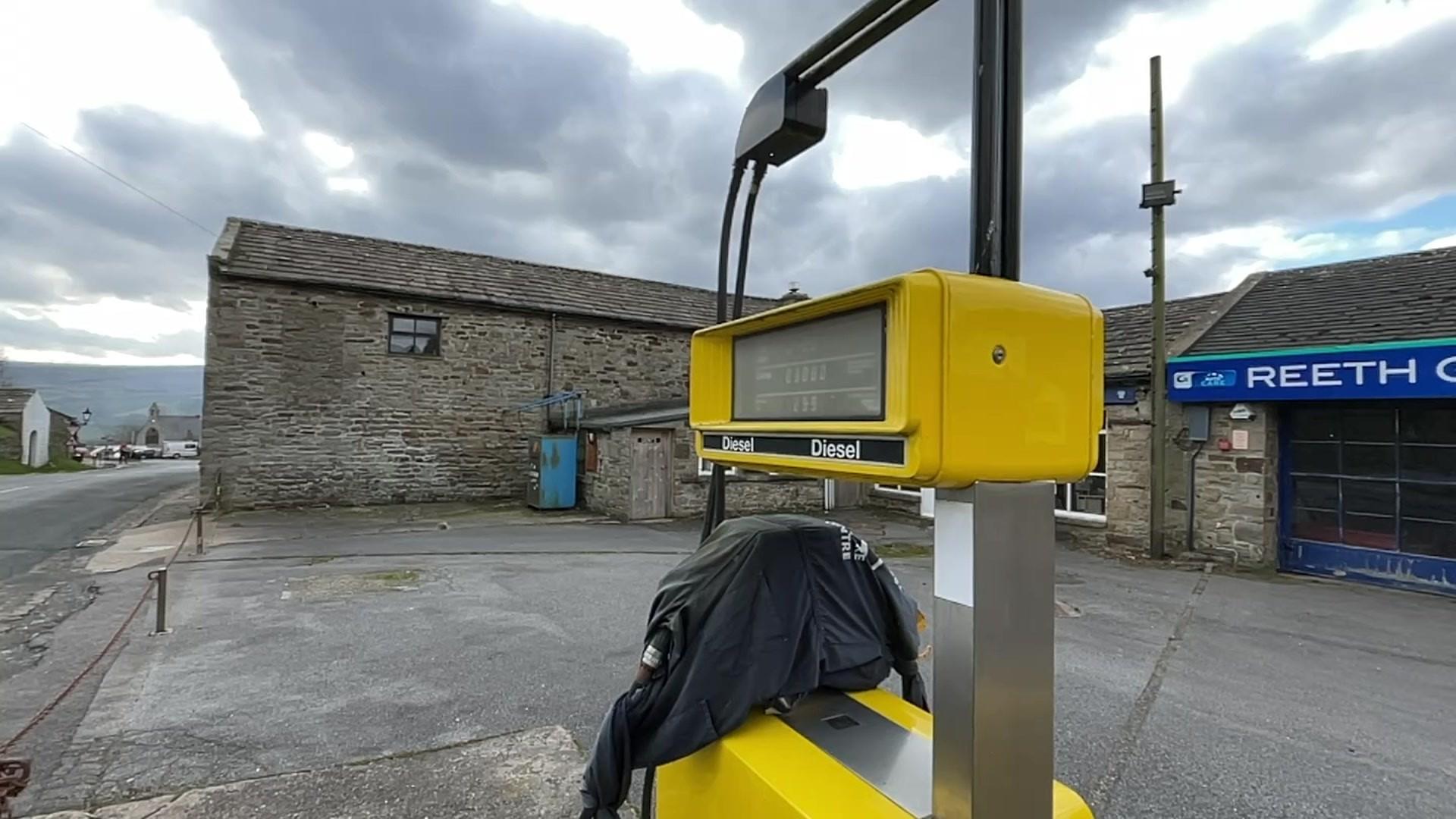Fuel price rises hit ice cream van trade
- Published
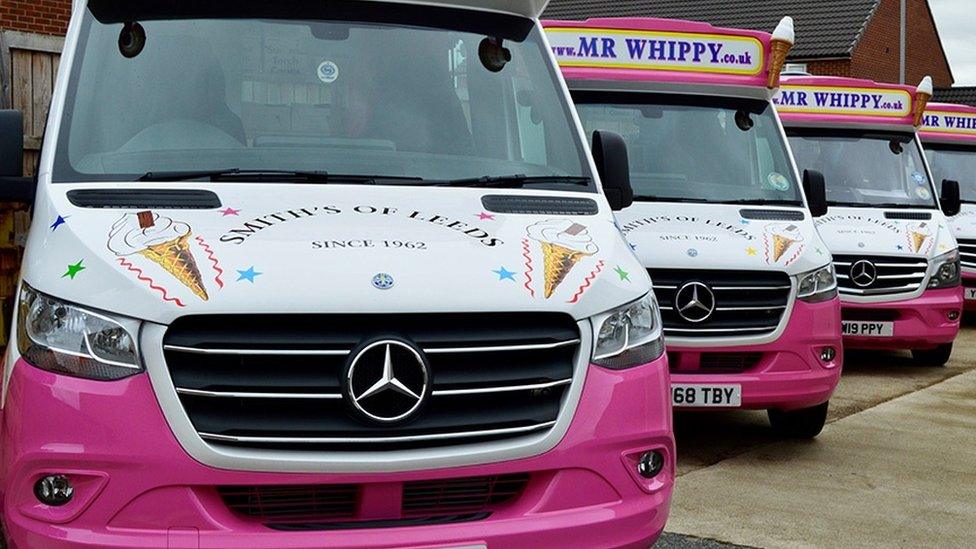
Ice cream van owners are feeling the effects of fuel price hikes
Ice cream vendors could be forced to ditch their livelihoods as fuel prices rise, industry chiefs have warned.
The doughty purveyors of frosted treats are a welcome summertime sight, but their vans use diesel-guzzling engines.
Many need to keep their vehicles ticking over, even when stationary, and can clock up high mileage as they travel to events or profitable patches.
Industry body chairman Maurice "Moz" Murray, said of this summer: "Beyond doubt, we will lose vans."
The cost of petrol has soared in recent days, with the average litre of unleaded costing 182.31p, and diesel 188.05p.
Mr Murray said the Ice Cream Mobilisers and Associated Trades Alliance (ICMAT), and its 2,500 members from Scotland to Cornwall, were "deeply concerned".
"It's only going to get worse over the summer when we visit various events over the summer holiday," he said.
Mr Murray, who trades in Lancashire, said the industry was at breaking point and the latest fuel hikes threatened to put some out of business.

Ice cream van seller Maurice Murray usually does a roaring trade over the summer
"My own fuel costs have gone up by a good third," he said. "Ice cream is not a necessity. It's a luxury. People are having to cut back on luxuries."
Hull-based Lawrence Glauser said he had gone from spending £25 per day on diesel for his Mercedes Sprinter van to about £50.
He explained that Mr Whippy machines need to be into mains power or run off the van's engine, which needs to be kept running.
"It works a bit like a car's air conditioning system," said Mr Glauser. "From 11:30am to 7:30pm, my van is chugging away."
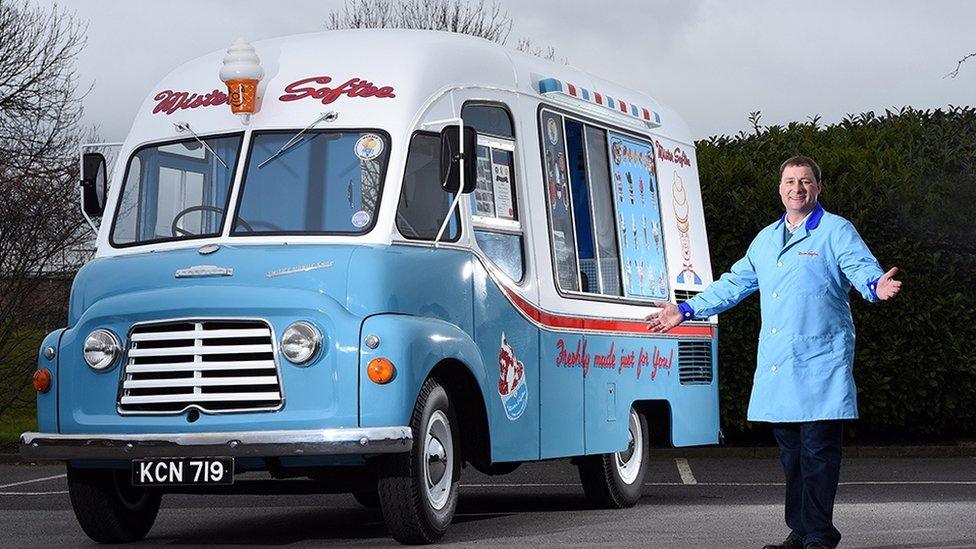
Ian Smith with his 'pride and joy' vintage van
Ian Smith, whose company Mr Whippy Leeds operates a fleet of eight vans, said paying over £100 to fill up a van "is [previously] unheard of".
"Not everyone can stand the extra cost, especially if they're driving around or travelling a long way to sites," he said.
Mr Smith said there was currently no viable alternative to diesel.
"We're stuck with it until someone develops an electric van capable of carrying the weight that we require," he said. "But even then electricity is going up too."
Mr Glauser is adamant that he won't swap to selling soft scoop ice cream, which is stored in battery-powered freezers.
He said: "I'm a Mr Whippy man, not a scoop man. If I can't afford to keep the engine running, I guess I'll be just be another ice cream man that bites the dust."
Mr Glauser, who has been in the industry since 2000, said it would be a crying shame if ice cream vans were to be consigned to history.
"There's nothing like the feeling you get when you see a little kid's smile at being handed an ice cream," he said.

Follow BBC Yorkshire on Facebook, external, Twitter, external and Instagram, external. Send your story ideas to yorkslincs.news@bbc.co.uk, external.
Related topics
- Published14 August 2023
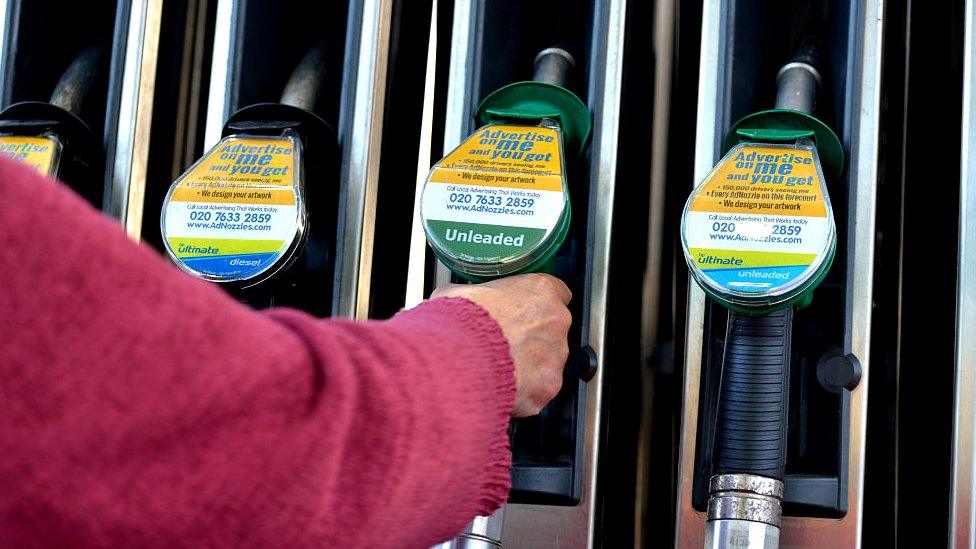
- Published8 June 2022
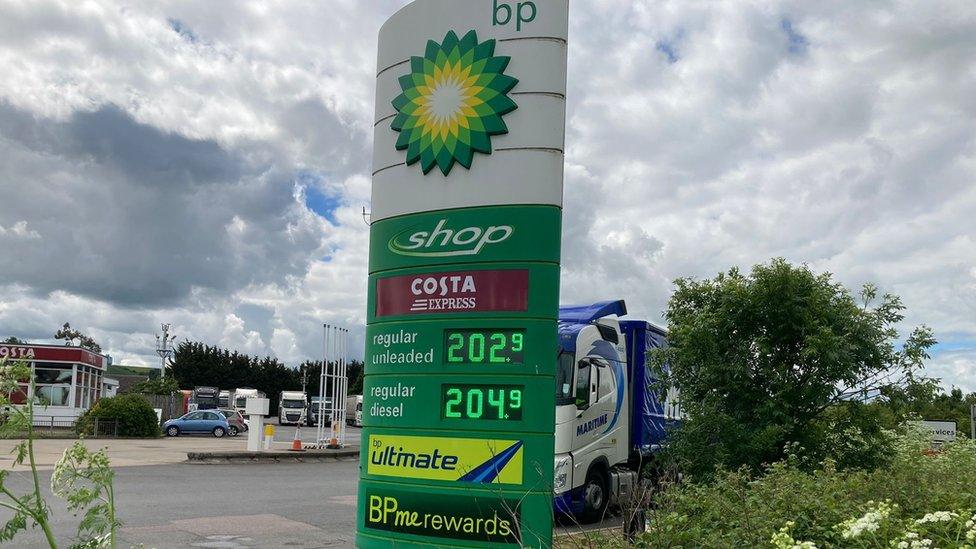
- Published15 March 2022
